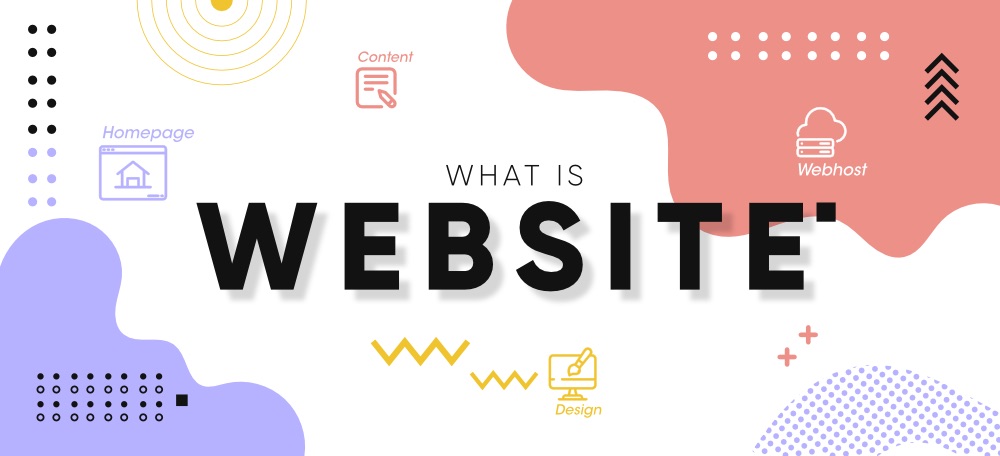
In a world where nearly everyone has access to the internet, having a website is no longer a luxury—it’s a necessity. Whether you’re a small business owner, a freelancer, a nonprofit organization, or a large corporation, a website serves as the backbone of your online presence. It’s not just about keeping up with the times; it’s about staying relevant, credible, and accessible in a competitive landscape.
Let’s dive deeper into why having a website is crucial and how it can empower your business to thrive in the digital age.
Your website is the digital equivalent of your storefront or office. It’s the first place most people go when they want to learn about your business. It’s where you showcase who you are, what you do, and how you can help your audience. Without one, you risk being invisible to potential customers or, worse, coming across as unprofessional or outdated.
Think about it: when you need a product, service, or information, what’s the first thing you do? You Google it. If your business doesn’t have a website, you’re missing out on a massive opportunity to make a great first impression.
Unlike physical locations, which have operating hours, a website is always available. It allows potential customers to explore your offerings, read about your services, or even make purchases at any time of day or night. This accessibility caters to modern consumers, who expect on-demand information and services. It also gives your business the chance to earn revenue even while you sleep.
Having a website signals professionalism and legitimacy. In fact, studies show that 75% of people judge a company’s credibility based on its website design. A clean, user-friendly website builds trust with your audience and shows that you’re serious about your business.
Imagine you’re searching for a service online, and one company has a professional website while another doesn’t. Which one are you more likely to trust? A website isn’t just a digital asset—it’s a testament to your commitment to serving your customers
A website breaks down geographical barriers, allowing you to connect with people from all over the world. While local customers are important, a website opens the door to new markets and clients beyond your immediate vicinity. Whether you’re selling handmade crafts or offering consulting services, a website makes it possible to expand your reach and grow your business internationally.
A well-designed website doesn’t just showcase your business—it serves your customers. Features like FAQs, live chat, contact forms, and informative content can make it easier for people to find the answers they need. This convenience not only saves time for your customers but also reduces the workload for your team.
For instance, a restaurant website with an updated menu and online reservation system can significantly enhance the dining experience. Similarly, an e-commerce store with clear product descriptions, reviews, and an easy checkout process can lead to higher customer satisfaction and repeat business.
A website is the foundation of your digital marketing strategy. It works seamlessly with platforms like social media, email campaigns, and online ads to drive traffic and generate leads. For example, you can use targeted ads to direct potential customers to a landing page on your website, where they can learn more about your offer and make a purchase.
Additionally, your website allows you to track user behavior, such as how they found your site, what pages they visited, and how long they stayed. This data is invaluable for refining your marketing strategies and optimizing your website for better conversions.
In today’s business world, not having a website puts you at a disadvantage. Your competitors likely have one, and customers are more likely to choose a business with a professional online presence. A website helps you stay competitive by ensuring that potential customers can find and engage with you online.
Moreover, it gives you a platform to differentiate yourself. With unique branding, compelling content, and excellent user experience, you can stand out from the crowd and leave a lasting impression on your audience.
Your website is a canvas for storytelling. It’s where you can share your brand’s mission, vision, and values. From the tone of your content to the design elements, every aspect of your website reflects your identity and helps build a connection with your audience.
For example, a nonprofit organization can use its website to highlight success stories, showcase its impact, and encourage donations. A small business can use its blog to share industry insights, helpful tips, and updates, positioning itself as an expert in the field.
Compared to traditional marketing methods like print advertising or billboards, a website is a cost-effective way to reach your audience. Once it’s built, the ongoing costs of maintenance and updates are relatively low, especially when weighed against the potential return on investment.
Additionally, with tools like content management systems (CMS), you can make updates yourself, eliminating the need for constant external help. This flexibility ensures that your website stays fresh and relevant without breaking the bank.
A website gives you access to analytics tools that provide valuable data about your audience. You can track metrics such as page views, bounce rates, conversion rates, and user demographics. These insights help you understand what’s working, what’s not, and where you can improve.
For instance, if you notice that visitors are leaving your site without making a purchase, you can test different layouts, calls-to-action, or payment options to boost conversions. This data-driven approach ensures that your website evolves with your customers’ needs.
So, don’t wait. Take the first step towards creating a website that reflects your brand, engages your audience, and drives results.